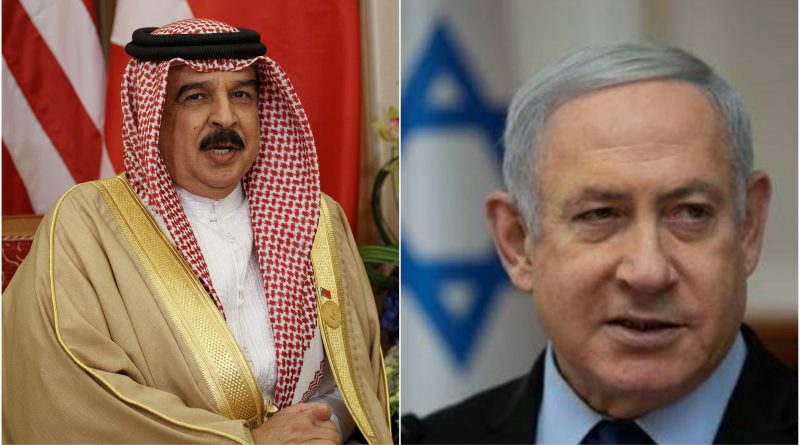Bahrain follows Emirates and normalizes ties with Israel
Manama (Reuters) – Bahrain joined the United Arab Emirates in striking an agreement to normalize relations with Israel on Friday, a dramatic move aimed at easing tensions in the Middle East.
U.S. President Donald Trump tweeted the news after he spoke by phone to both Bahrain’s King Hamad bin Isa Al Khalifa and Israeli Prime Minister Benjamin Netanyahu, the White House said.
“This is a historic breakthrough to further peace in the Middle East,” the United States, Bahrain and Israel said in a joint statement.
“Opening direct dialogue and ties between these two dynamic societies and advanced economies will continue the positive transformation of the Middle East and increase stability, security, and prosperity in the region,” it said.
The United Arab Emirates last month agreed to normalize ties with Israel under a U.S.-brokered deal. That deal is scheduled to be signed on Sept. 15 at a White House ceremony hosted by Trump and attended by Israeli Prime Minister Benjamin Netanyahu and UAE Foreign Minister Sheikh Abdullah bin Zayed al-Nahyan.
The easing of relations with Israel comes amid a backdrop of shared fears about the threat of Iran to the region.
The Trump administration has tried to coax other Sunni Arab countries to engage with Israel. The most powerful of those, Saudi Arabia, has signaled it is not ready.
Bahrain, a small island state, is a close ally of Saudi Arabia and the site of the U.S. Navy’s regional headquarters. Riyadh in 2011 sent troops to Bahrain to help quell an uprising and, alongside Kuwait and the UAE, in 2018 offered Bahrain a $10 billion economic bailout.
Friday’s deal makes Bahrain the fourth Arab country to reach such an agreement with Israel since exchanging embassies with Egypt and Jordan decades ago.
Last week, Bahrain said it would allow flights between Israel and the UAE to use its airspace. This followed a Saudi decision to allow an Israeli commercial airliner to fly over it on the way to the UAE.



